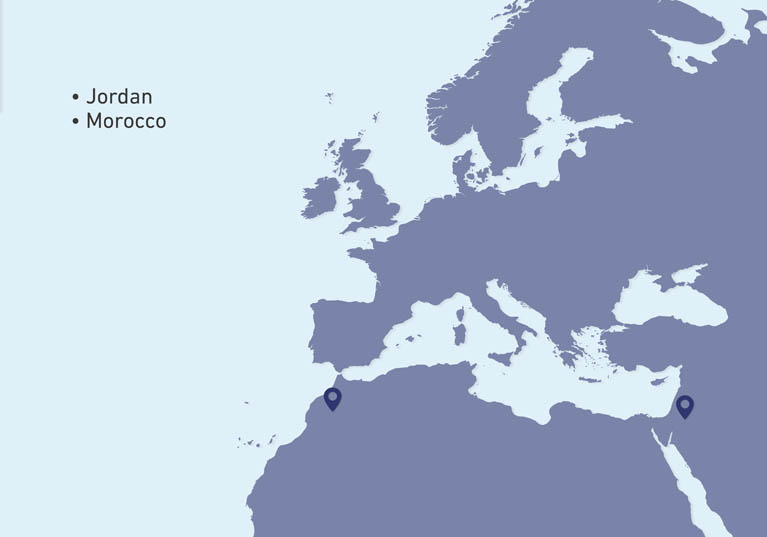
Promoting Financial Inclusion via Mobile Financial Services in the Southern and Eastern Mediterranean Countries
Context and objectives
The Promoting Mobile Financial Services in Mediterranean Partner Countries project helped the Central Banks of Jordan and Morocco to expand access to financial services across their populations.
Access to quality financial services — including means of payment, savings, credit, insurance and money transfer systems — is crucial for households to manage risks, invest productively and respond to financial shocks. Financial inclusion can support the social inclusion of the most vulnerable in society, and such projects can enhance women’s economic empowerment when properly designed and implemented. Financial inclusion projects can therefore help advance both gender equality and poverty reduction, while promoting inclusive development and job creation.
The project helped expand access to financial services across Jordan and Morocco through the development of innovative retail payment solutions. By extending the availability of reliable payment services, users (often low-income individuals) without access to financial services can be encouraged to join the financial system. This can directly improve their lives by offering them options beyond a cash-only system. This also helps develop the economy by increasing the amount of transactions carried out through formal channels and by providing opportunities to develop innovative new products.
The project was carried out through a comprehensive package of technical assistance and capacity building actions adapted to each country. The UfM organised stakeholder workshops to promote the development of regional partnerships and to share best practices among the countries participating in this programme.
Location

Key figures
Duration:
2014-15
Age range:
16+
Total cost:
€1.3M
Countries:
2
Financial contribution
Promoter
The first promoter was the Central Bank of Jordan (CBJ), the regulator and supervisor of financial institutions in Jordan.
The second promoter was Bank Al-Maghrib (BAM), Morocco’s Central Bank and the prudential regulator and supervisor of financial institutions.
Key partners
Beneficiaries
The project targeted all members of the population aged 16+, as it aimed to create a higher rate of financial inclusion.
Key actions
Delivery of a comprehensive package of technical assistance and capacity-building actions adapted to each country.
In Jordan, the project built the capacities needed by the Central Bank in order to adapt the regulatory framework for retail payment service providers and enhance its oversight function.
In Morocco, actions supported the preparation of the new regulatory framework of payment service providers to be implemented by the Central Bank.
Results
Expanded access to financial services resulted in an increase in innovative retail solutions and a reduction of financial transaction costs.
On a regional level, the involvement of the Secretariat of the Union for the Mediterranean contributed to the promotion of regional knowledge-sharing among the countries participating in this programme.
